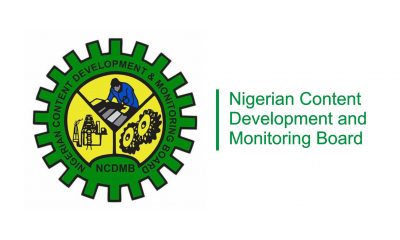News
Jonathan, Mark Blast Maku Over Defection …President Rules Out Sambo As Successor
President Goodluck Jonathan; Senate President, David Mark; and a former chairman of the Peoples Democratic Party (PDP), Ahmadu Ali, yesterday expressed anger at the way the former Minister of Information, Mr. Labaran Maku, dumped the PDP for the All Progressives Grand Alliance (APGA) without exhausting all avenues for dialogue within the party.
While Jonathan described Maku’s action as anti-party, Mark said the former minister was a liar while Ali described him as an ingrate. They spoke at the Lafia Township Stadium during the PDP presidential rally, yesterday.
The President said he could not be involved in anti-party activities, adding that he did not at any time have any discussion or encourage Maku to join another party.
Mark on his part said Maku has to apologise and retrace his steps, before he could be accepted back to the party.
The Senate president said the North Central was solidly behind Jonathan, and will vote for him because he has brought democracy dividends to bear on the region.
Ali also described Maku as an ingrate, saying that despite using the platform of the party to rise to stardom, he jumped the ship because of greed.
He said the president had never asked anybody to join any party to canvass for him, ýsaying Maku’s intention is to smear the image of Jonathan and portray him as a religious bigot.
He accused Maku of dropping the name of the president in his bid to realise his ambition, which he insisted, will never happen because he lacks the required integrity.
However, President Goodluck Jonathan yesterday tacitly ruled out having Vice President Namadi Sambo as his successor, saying the next Peoples Democratic Party (PDP) president must be below 60 years of age.
Addressing a large crowd at the Lafia Township stadium during his presidential campaign tour to Nasarawa State, Mr. Jonathan said his administration believes in the youth and will do everything possible to support the younger generation.
“Obasanjo was president at 70, Yar’Adua at 60 and me close to 60 so the next president must be younger than me,” Jonathan said.
Vice president Namadi Sambo is already 60 years old. If Mr. Jonathan wins re-election on February 14 and leaves office in 2019, his remarks means he would not support Mr. Sambo to succeed him as the vice president would have turned 64.
Jonathan said the PDP administration will invest in the younger generation and ensure that a space is made available for them in the future.
He explained that his administration has taken keen interest in educational development which is a yardstick for developing the younger generation.
He laid emphasis on youth empowerment which he said will be cardinal principle of his government if re-elected.
President Jonathan said the Doma Dam in Doma Local Government Area of the state will be completed to pave way for agricultural development that will create development for the youth.
He added that the PDP administration will work to integrate Nasarawa within the Federal Capital Territory in the next 25 years.
Earlier, the National chairman of the PDP, Ahmadu Muazu, reiterated the party’s concern for the next generation and promised that the party will continue with policies that will develop the youth.
News
Tinubu Appoints Four Nominees Into NCDMB Governing Council

President Bola Tinubu has approved the nomination of four new members to the Governing Council of the Nigerian Content Development and Monitoring Board (NCDMB).
The Special Adviser to the President on Information and Strategy, Bayo Onanuga, in a statement yesterday, said the appointment is to fill existing vacancies and strengthen the board’s capacity.
The statement said the approved nominees are Mr. Olusegun Omosehin of the National Insurance Commission and Engr. Wole Ogunsanya of the Petroleum Technology Association of Nigeria.
Tinubu also endorsed the nomination of Sam Onyechi, who represents the Nigerian Content Consultative Forum and Barrister Owei Oyanbo from the Ministry of Petroleum Resources.
The President encouraged the new members to leverage their expertise and dedication to enhance local content development within Nigeria’s oil and gas industry.
It added, “The nominations arose from the exit of previous institutional representatives from the Governing Council.
“The NCDMB Governing Council, established under Section 69 of the Nigerian Oil and Gas Industry Content Development Act, 2010, comprises representatives from key institutions.
“These include the Ministry of Petroleum Resources, the Nigerian Upstream Petroleum Regulatory Commission, the Nigerian National Petroleum Company Limited, the Petroleum Technology Association of Nigeria, the Council for the Regulation of Engineering in Nigeria, the Nigerian Content Consultative Forum, and the National Insurance Commission.”
News
NDDC To Construct Hostels, Roads In UNIPORT – Ogbuku

The Niger Delta Development Commission (NDDC) has announced plans to construct additional hostels, rehabilitate roads, and enhance power supply in the University of Port Harcourt (UNIPORT).
NDDC’s Managing Director, Dr Samuel Ogbuku, disclosed this during a visit to the commission’s headquarters in Port Harcourt, yesterday by a delegation from the UNIPORT’s Governing Council.
Ogbuku stated that the NDDC had committed to upgrading facilities at UNIPORT as part of efforts to foster partnership with educational institutions across the Niger Delta.
According to him, the implementation of additional projects at the university forms part of a broader strategy to improve education standards in the region.
“Aside from the construction of new hostel blocks and installation of a 300 KVA solar inverter system, the NDDC will also facilitate more projects in the university.
“The commission will also deploy its engineers to assess the condition of UNIPORT’s roads and hostels for potential rehabilitation,” he said.
Ogbuku noted that upon completion, the projects would add to various initiatives previously undertaken by the commission at the university.
“These and other projects reflect our commitment to actualising President Bola Tinubu’s Renewed Hope Agenda in the Niger Delta region,” he added.
He reaffirmed the NDDC’s dedication to fostering development and strengthening partnerships across the region.
Earlier, Sen. Mao Ohuanbunwa, Chairman of UNIPORT’s Governing Council, who led the delegation commended the current leadership of the NDDC for its achievements in accelerating development in the Niger Delta.
He highlighted the university’s infrastructural challenges, noting that it lacked adequate facilities to accommodate its growing student population, and appealed for the NDDC’s support in addressing the shortfall.
“Currently, UNIPORT has a total student population of about 50,000, while its hostel accommodation capacity can only cater for 5,000 students.
“We therefore urge the NDDC to assist in the construction of additional hostels, improve transportation facilities, and facilitate the acquisition of gas turbines to enhance power supply for our students,” Ohuanbunwa pleaded.
The Vice Chancellor of UNIPORT, Prof. Owunari Georgewill, commended NDDC for its impactful projects across the Niger Delta and extended an invitation to the commission to participate in the institution’s forthcoming 50th anniversary celebrations.
News
Senate Rejects Motion To Rename INEC Headquarters After Humphrey Nwosu

The Senate has rejected a motion to rename the Independent National Electoral Commission (INEC) headquarters after the former chairman of the defunct National Electoral Commission, late Prof Humphrey Nwosu.
Nwosu presided over the June 12, 1993, presidential election, which was truncated by the former military President, General Ibrahim Babangida (rtd).
The election which was won by the late business mogul, Chief MKO Abiola, was adjudged to be the freest and fairest in the electoral history of Nigeria.
The motion to rename INEC after Nwosu was re-sponsored by Senator Enyinnaya Abaribe yesterday after lawmakers threw it out last Wednesday.
Abaribe called for posthumous national honours to be conferred on Nwosu in recognition of his role in Nigeria’s democratic evolution.
However, the proposal sparked a heated debate once again, with lawmakers deeply divided over Nwosu’s legacy.
Senator Osita Ngwu acknowledged that Nwosu operated under a military regime, which restricted his ability to announce the results.
He argued that “there was no way he would have announced the results with a gun to his head. That doesn’t change the fact that some of us see him as a hero.”
Senator Austin Akobundu, however, described it as most uncharitable for lawmakers to dismiss Nwosu’s contributions, insisting that he deserved a place in Nigeria’s hall of honour.
On the other hand, several senators like Senator Jimoh Ibrahim dismissed the idea outright, questioning why the Senate should honour someone who failed to announce the results insisting that “nothing should be named after him”.
Senator Cyril Fasuyi argued that history does not reward efforts, but only results.
“As long as he did not announce the result, whether under duress or not, I am against naming INEC headquarters after him,” he submitted.
Also, Senator Sunday Karimi criticised Nwosu for lacking the courage to speak out, while Senator Afolabi Salisu warned that immortalising him would undermine the memory of MKO Abiola, the widely accepted winner of the June 12, 1993, annulled election.
“Any attempt to do anything beyond a one-minute silence is to rubbish Abiola’s legacy,” he tendered.
After intense deliberation, most senators rejected the motion through a voice vote.
They, however, agreed to honour him with a one-minute silence and extend condolences to his family, effectively dismissing the other prayers to immortalise Nwosu.
-
News5 days ago
TETFund To Set Up 72 Specialised ICT Centres
-

 Editorial5 days ago
Editorial5 days agoNAFDAC’s Destruction Of Counterfeit Drugs
-

 News5 days ago
News5 days agoTinubu Appoints Four Nominees Into NCDMB Governing Council
-
Business5 days ago
Rivers Host First Modular LPG Plants … As FG Commissions Project
-

 Rivers5 days ago
Rivers5 days agoSEEPCO’s Drives To Commitment of Safeguarding The Survival Of Tree Plantations In Nigeria
-
Opinion5 days ago
Addressing Nigeria’s Social Ills Through Cultural Education
-
News5 days ago
New Constitution: Anyaoku, Osoba, Yakasai To Meet N’Assembly In April
-
Sports5 days ago
Chelsea Fans Want Co-Owner Investigated

